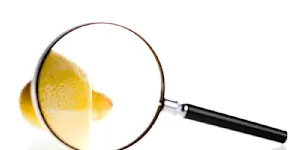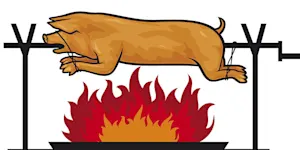What Makes This Word Tick
"Friable" is a pleasant word that rolls off the tongue almost like a gentle crumble, which is fitting given its meaning. It describes something easily crumbled or reduced to powder, often used in contexts involving soil or rocks in geology. Despite its technical applications, you might find it also perfectly applicable to the texture of a freshly baked shortbread cookie. Delicious!
If Friable Were a Person…
Picture a delightfully eccentric individual who might always be on the edge of breaking into laughter—or too many pieces. This person is delicate yet charming, like a favorite soft sweater you handle with care. With endless enthusiasm for new experiences, our "Friable" friend is adorably quirky and comfortably fragility-loving.
How This Word Has Changed Over Time
"Friable" has stayed remarkably true to its roots, both in linguistic terms and in the sense of things falling to pieces. Its usage has remained fairly specialized, a staple in agriculture and geology. But in today's world, it also finds home in food critique, where chefs and critics alike use it to describe tender pastries or cheeses.
Old Sayings and Proverbs That Use Friable
While "friable" doesn't feature in any classic sayings or proverbs, its spirit of fragility and change resonates with the proverbial "ashes to ashes." In life as with friable things, we are reminded of the transient beauty found in the everyday ebb and flow.
Surprising Facts About Friable
You might be interested to know that "friable" often shows up in medical contexts, wherein it describes tissue that's easily damaged. It's also sometimes used in pharmacy, to describe materials that readily disintegrate. It's a wonder how this gentle word finds itself in such scientifically formidable places!
Out and About With This Word
When you're wandering the countryside or simply tending to your garden, "friable" might come to mind as you sift through the soil with your fingers, evaluating its texture. It's also a lovely word to deploy next time you describe that perfect cake you baked, with its crumbly, melt-in-your-mouth texture.
Pop Culture Moments Where Friable Was Used
While not a blockbuster or a chart-topper, "friable" sometimes graces the pages of gourmet food magazines and appears in the descriptions of haute cuisine. It's also occasionally whispered in films and TV shows with scientific plots or agriculture-themed episodes.
The Word in Literature
"Friable" might comment quietly from the sidelines of a John Steinbeck novel, capturing the condition of the soil in "The Grapes of Wrath." Not often in the literary spotlight, it nevertheless links the natural worlds and perhaps crops up in passages describing landscapes or the delicate decay of time.
Moments in History with Friable
Consider the Dust Bowl of the 1930s—a period of severe dust storms that ravaged the American and Canadian prairies. "Friable" could easily have been used to describe the loose, easily eroded topsoil that fueled those catastrophic storms.
This Word Around the World
In French, you might hear "friable" translated as "friable," which sounds almost the same but with an added charm of the native tongue's refinement. Various nations might use different terms but often capture the same fragility and potential for disintegration that "friable" embodies.
Where Does It Come From?
Originating from the Latin word "friabilis," which means "easily crumbled," "friable" drifted into Middle French as "friable" before settling into English. Its journey reflects its meaning—fittingly gentle yet persistently transitional.
How People Misuse This Word
People might mistakenly use "friable" to describe things that are flimsy or feeble, rather than focusing on its essence—being easy to crumble or reduce to fine particles. A reminder: it's less about weakness and more about texture!
Words It’s Often Confused With
Frail: This refers to physical weakness or delicacy in health.
Fragile: Describes something easily breakable, typically more solid objects.
Brittle: Implies hardness that shatters easily rather than crumbling.
Additional Synonyms and Antonyms
Synonyms include "crumbly," "powdery," and "fragile." Antonyms would be "cohesive" or "solid," which suggest unity or firmness against crumbling.
Want to Try It Out in a Sentence?
If you describe soil as friable, you're complimenting its ideal condition for planting, with a structure that's perfect for root growth. Or perhaps after a dinner party, you'd tell your guests that the tart's crust was delightfully friable, evoking its crumbly perfection.
















